
During my first college internship, I completely replaced myself with Visual Basic scripts. Let me explain.
I had been working in Excel for the first month of the internship. Basic market analysis stuff for a government consulting firm. I was annoyed by having to do the same things over and over again, and while cell functions were helping, they weren't handling as much of the work as I thought the computer could.
Then I got some advice from another intern doing some programming work for them:
"If you're doing something manually on a computer more than once, there's probably a way to make the computer do it for you."
After I heard that advice, I did more research. I eventually learned about Visual Basic, a programming language built into Excel, and after spending a few weeks piecing together a basic understanding of it I was able to automate away almost all of the work I was doing as an intern.
By the time I left, I had completely replaced myself with Visual Basic scripts.
This was my first exposure to the "Systems Mindset." The idea that when faced with any kind of recurring task or process, there is usually some way to set up a system to handle it for you.
As I tried to embody this mentality, I started to see that many of the most successful people I encountered had mastered this mindset. When they saw something repetitive or defective in their life or business, they would build a system to handle it for them.
Sometimes this manifested in small ways: like using a text expander to type their email in 3 characters instead of 20.
But it more often manifests in big ways: like hiring people or building a business.
Whatever scale it's at, the systems mindset is a key piece of entrepreneurial and professional success, and even if we've adopted it in one area, we may be blind to other parts of our life where we're failing to employ it.
In this article, I'm going to explore what makes the systems mindset so powerful, how we can use it to be more effective in our personal and professional lives, plus some common challenges with using it and how to overcome them.
By the end, you'll have a roadmap for spotting and creating more systems in your life, freeing you up to focus on your most important work.
Why The Systems Mindset is So Powerful
The systems mindset is how you maximize your ROI on time.
It's the recognition that by investing additional resources into the task at hand to build a system for it, you can save yourself a significant amount of resources in the future.
Basic automations are the simplest example. Let's say you spend 15 minutes a day going through all the random email newsletters and promos you get. If you spent an hour actually unsubscribing from all the ones you don't want anymore, you'd be dramatically increasing the resources you're allocating to this problem in the short term.
But in the long term, you might cut down your daily management to 5 minutes, which means that after 6 days you've broken even on your investment, and every day after that you're getting an additional 16.7% ROI on that one hour you invested.
The systems mindset is simply looking for these opportunities in your life to temporarily over-invest in a problem in order to free up more long term resources.
The classic example is hiring. If there's anything in your life or business that someone else can do at least 80% as well as you, and if you can afford to hire them to do it, and if having someone else do it will enable you to generate even more resources, then it's probably worth hiring someone to do it. It's a win for everyone involved: you created a job for someone, and now you have more time to create more jobs. But it requires that big initial investment.
A company is just the eventual evolution of continually applying the systems mindset to an initially small problem to solve bigger and bigger ones. My marketing agency Growth Machine started with just me doing SEO consulting, but as I started hiring people to take over each piece of it, it grew into a team of now 15 people.
The systems mindset is so powerful because it is the primary way you turn resources into leverage. It's how you multiply yourself and your abilities, and take the full advantage of your most constrained resource: time.
Often the biggest bottleneck in the growth of any project is how quickly you can develop a system to solve a problem, and then either use technology or hire someone to help further that system.
So if we can master the systems mindset, we can multiply our efforts faster and more effectively. But it's not so easy to adopt.
Challenges with the Systems Mindset
The big challenge with the system mindset is it requires long term thinking and managing our sense of loss aversion.
If we're fixated on maximizing short term profit, we won't want to invest in building up a system, since in the short term you're going to be spending a disproportionate number of resources on the problem.
And if we have too much loss aversion, we won't want to spend any money or time on something that we're not getting a quick ROI from.
This is why I see entrepreneurs embrace the systems mindset better than people with a salary. A core part of the systems mindset is that if you get more time back, you'll be able to use that time to make more money. It's a flywheel effect. If you figure out how to make money doing something, and you can build a system to do more of that for you, then you should be able to make more money to build a bigger system. But if you don't have that second part, then there's often not a strong motivation to make the system in the first place.
That's why I like to think of the systems mindset more in terms of resources than money. Even if you're not an entrepreneur or able to turn more time into more money, more time alone is a big reward.
Obviously the examples will vary depending on your income, but as a simple example, isn't it worth having a few more hours for hobbies or your kids each month than the couple hundred dollars it would cost to hire a house cleaner?
If you're just fixated on money, then hiring a cleaner might look like this:
But when you consider time as the more important resource, it starts to look more like the graph above:
This is the first challenge with the systems mindset: valuing time over money. At least in the short term. If you're fixated on saving as much money as possible, then you're rarely incentivized to build systems that will save you time. But when you start trying to optimize around freeing time, you end up building more systems earlier, and typically making more money in the long run.
The need to value time over money is why I like to think of the Systems Mindset as "strategic laziness." Strategic laziness means not forcing yourself to do everything just because you can, and to instead spend money to free up more time.
But even if you embrace the idea of strategic laziness and valuing time over money, you might run into the second big challenge: not knowing how to create systems through automation or hiring.
I've had the pleasure of introducing at least a few dozen people to Zapier over the years. For the uninitiated, Zapier is an online software that automates relationships between different online tools. We use it extensively at Growth Machine to do things like automatically fill out Asana projects based on content marketing plans we put together with our clients, or to help onboard new writers and employees.
Learning how to use Zapier is a great initiation to “thinking with systems,” because once you're trained on it, you'll develop an intuition for when you're doing something that could be automated with a Zap. It helps you be strategically lazy by showing you how much time you could save with a small time investment in building a Zap to handle the process for you. As a simple example, I built an entire quiz funnel that gave personalized product recommendations just by hacking together a fairly detailed Zap.
Discovering tools like Zapier that help you automate repetitive tasks and processes is a great way to start building systems. But the real systems building eventually involves other people. And hiring is a very difficult skill to start learning, but extremely powerful once you've gotten good at it.
How do you get good at hiring? Well, I'm still learning too, but it's hard to get better at anything if you don't start doing it.
This is where you really have to fight the loss aversion: when you first start hiring people, you're probably going to get it wrong and waste a lot of money and time.
But unless you go through that big spike in resource allocation to the problem, you'll never get down to where you've dramatically reduced the amount of your time that's going towards it. So even if you’ve never hired someone, whether a full timer or contractor, to take over some small part of your work, the sooner you start trying to do more of that the sooner you’ll free up your resources to do even bigger and better work.
So given those challenges, how do we start to adopt more of a systems mindset in our lives?
How We Can Develop More of a Systems Mindset
Even if you think you're already good at having the systems mindset, you might be somewhat domain dependent about where you apply it. For example, I’ve been pretty good about it with Growth Machine and my professional work, but I only recently started thinking seriously about it in my personal life.
The first exercise that can help is to list out all the random projects and tasks you do in a given week, organized by buckets. My buckets from earlier this year would have included:
- Writing
- Meetings
- Sales
- Marketing
- Corporate Finance
- Personal Finance
- Cooking
- Running Errands
- Household Chores
- Dog care
Once you have your buckets, you can look at them and seriously question how much of them you need to be doing. Even the ones you think you have to do you might be surprised by: I did all of the sales at Growth Machine until the beginning of this year when we hired someone who did a good job taking it over, and now he’s doing a much better job of it than I ever was.
Or as another example, I realized I was spending a lot more time in email than I'd like, so my VA and I figured out a system for her to take it over, and now I only spend 5-10 minutes on email a day.
(That’s going to be the topic of the next post, so be sure to subscribe so you get it.)
In my experience, every area where I've thought “oh that'd be really hard to hire someone for or train someone to do” has been the highest leverage thing to focus on finding help for. The biggest pain points are also the biggest opportunities for building a system to replace yourself.
But it will also help to have an idea in mind of what freeing up more time will let you do. You either need to choose to prioritize time over money, and say you’d rather have less money and more time, or you need some idea of how you’re going to use the newfound time to make more money than you're spending on creating the system.
For example, hiring someone to help with household stuff and errands is giving me more time to focus on writing and Growth Machine. Hiring people to help with marketing and sales at Growth Machine freed me up to focus on new lines of business. To make your system building sustainable, you need a clear idea of how you're going to use that newfound time so you don't waste it.
The other habit that can really help is by reviewing your “to do list” at the end of the week and asking yourself if anyone else could do anything on it 80% as well as you. This has been the most helpful guiding question for me to find opportunities for new systems, because there’s honestly not much besides writing that I don't think I could find someone to do just as well as me.
Then it's just a question of where you can afford to build a system. Obviously if you don't have a way to make more money with your newfound time, you're going to be limited in how much of this you can do.
This is part of why I see entrepreneurs and freelancers grasping the Systems Mindset better than salaried people. When you have a salary, you have a more fixed pot of money, and there’s less incentive to spend money to free up time. If that’s you, then it might be worth exploring ways you could be making some money in your free time with some kind of side hustle.
Integrating the Systems Mindset
If you feel like you’re spread too thin, doing the same task over and over again, or not able to grow what you’re working on, there might be an opportunity to apply more of a systems mindset to the problem.
Taking the time to write out everything you’re doing in a given week and seriously consider if someone else, or an automation, could do it 80% as well as you will go a very long way towards identifying areas in your life you could build systems to multiply yourself.
Grappling with new tools or trying to hire can be challenging, but it’s the only way to dramatically increase what you can do in a week as an individual.
Time is your only truly finite resource, and if you don’t make the most of it, it’s easy to let it slip by.
The Only Subscription
You Need to
Stay at the
Edge of AI
The essential toolkit for those shaping the future
"This might be the best value you
can get from an AI subscription."
- Jay S.
Join 100,000+ leaders, builders, and innovators

Email address
Already have an account? Sign in
What is included in a subscription?
Daily insights from AI pioneers + early access to powerful AI tools
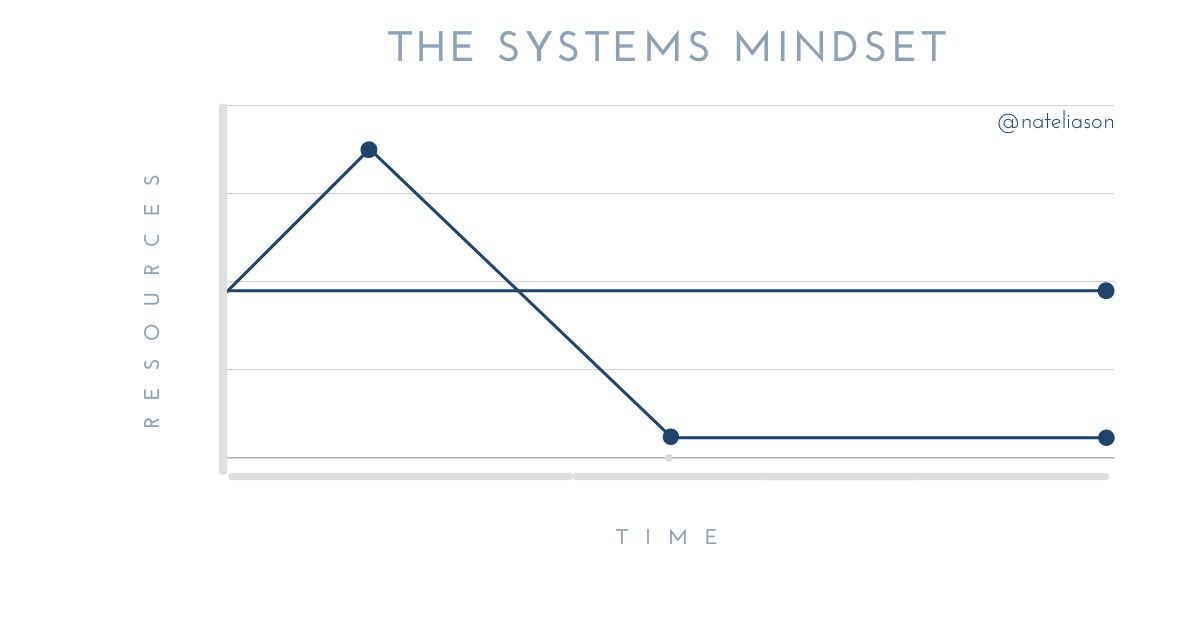
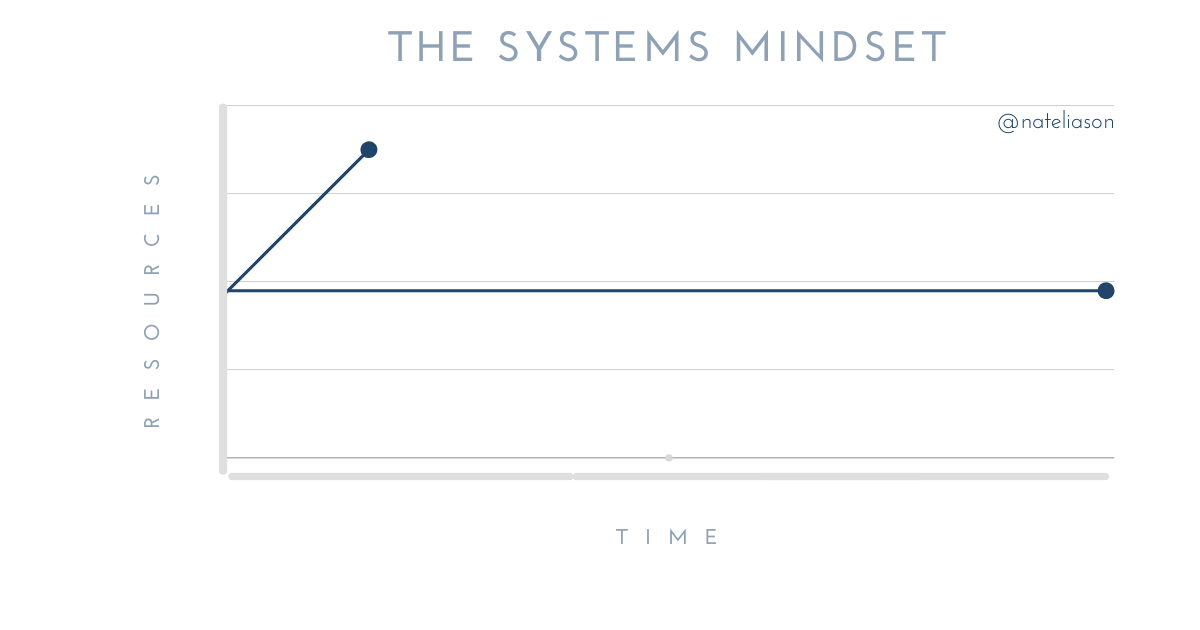
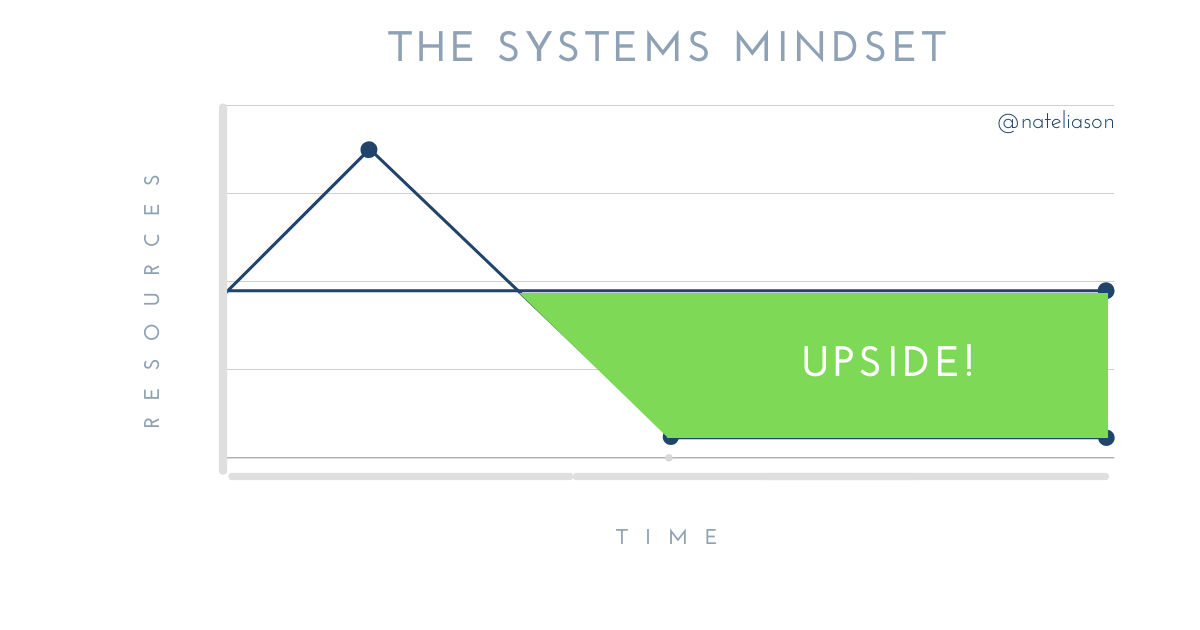
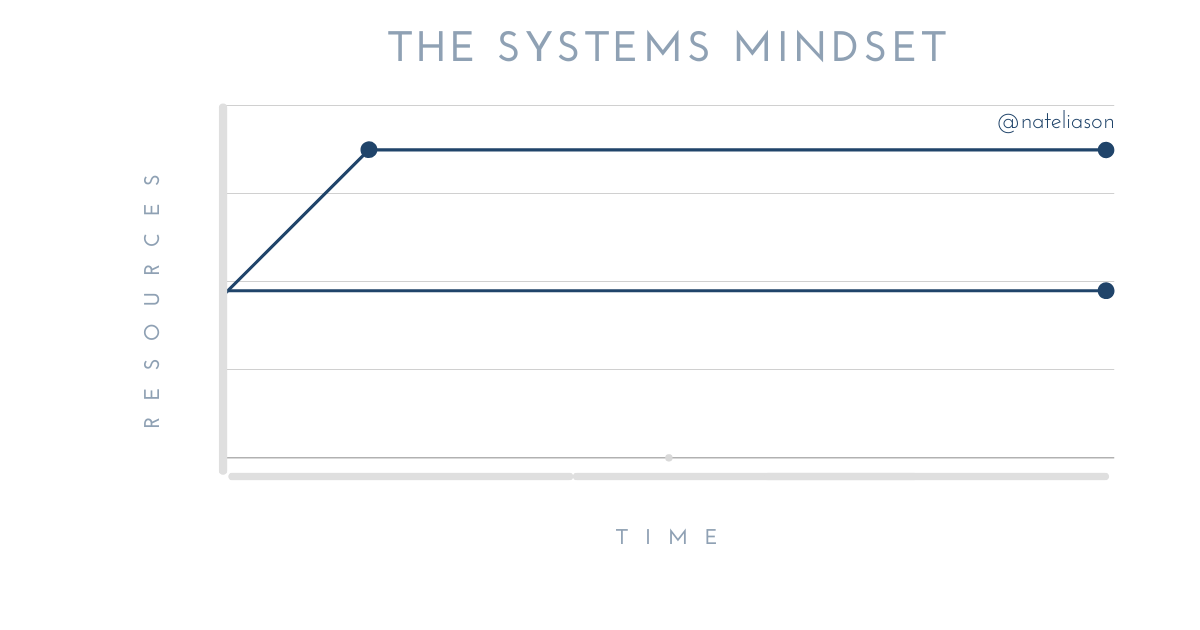
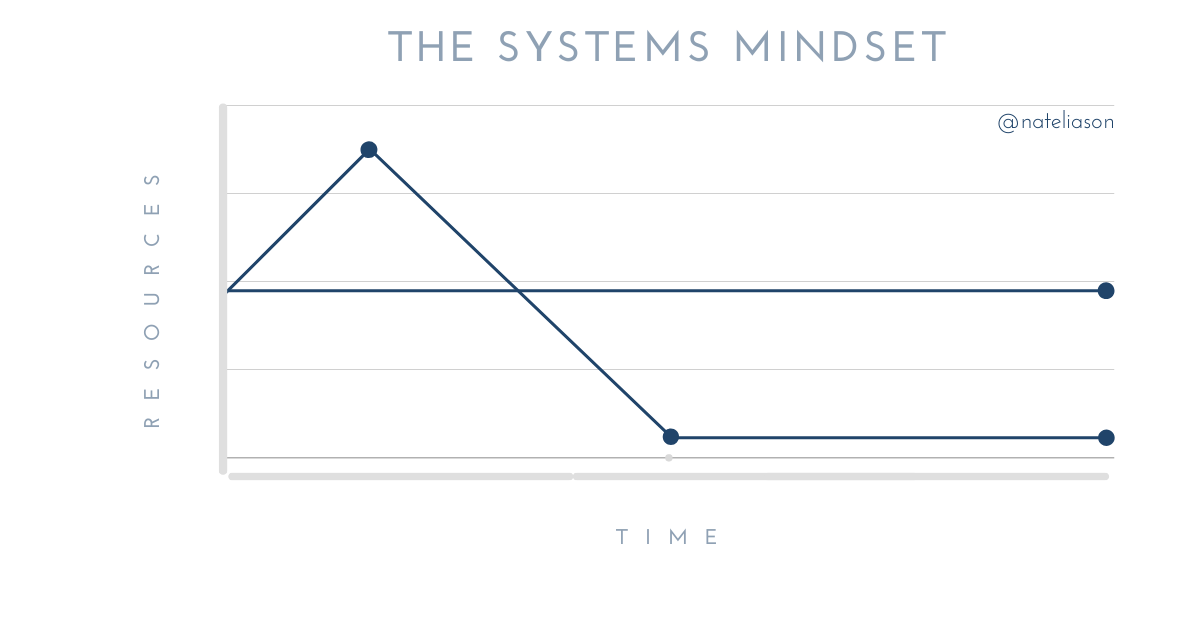







Comments
Don't have an account? Sign up!